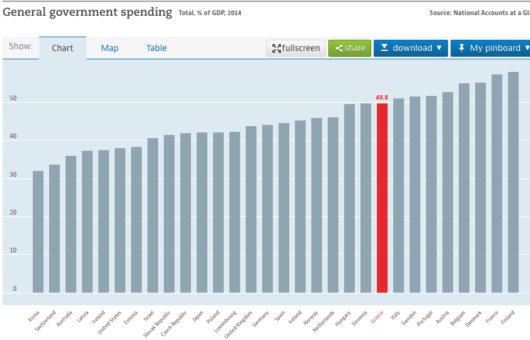People are being way too kind to Trump
I am starting to see a disturbing pattern, people trying to defend Trump’s late night call to General Flynn, asking him whether its better to have a strong currency or a weak currency. The argument people are making is that economists can’t agree on whether a strong currency is good or a weak currency is good, so why shouldn’t Trump’s question be viewed as reasonable?
Because Trump’s already made up his mind on the issue! He campaigned on the claim that China was manipulating the yuan, and that this was hurting the US. But how can he assert that a change in the yuan/$ exchange rate hurts the US, when he doesn’t even know whether the US benefits from or is hurt by a strong yuan? Trump’s just admitted that his campaign promises on exchange rates were meaningless, he was just blathering on about something his protectionist buddies fed him. Trump himself doesn’t even understand this stuff, that’s why he latched onto Peter Navarro. Navarro uses all this hyperbolic rhetoric about the Chinese destroying America, and Trump laps it up because his instincts tell him the same thing. But if asked to explain how, he wouldn’t be able to tell you whether it was the weak yuan or the strong yuan that hurt us, just that he “knows” those “crafty Asians” must be stealing us blind. (OK, made up quotes, but that’s how his mind seems to work.)
I hear you say, “Yes, but Trump has advisors who do have a sophisticated understanding of international economics”.
Oh really? Peter Navarro? Wilbur Ross? Here is one of Trump’s top economic advisors, Gary Cohn:
At the start of 2015 there were three countries in the world that were willing to have a strong currency. The Swiss, the Chinese, and the U.S. The Swiss pulled the rip cord overnight. They just ripped it off and said, ‘We are done. We are done having a strong currency. It is too expensive to defend this.’
ROTFL
The Swiss move was a headline story. If Cohn doesn’t even know whether the SF went up or down, then he has no idea of what’s happening. He should not even be discussing exchange rates with the WSJ.
I’m telling you, we are being governed by people who know nothing. Who exactly is going to do these negotiations? I can just see them returning from Beijing with a Chinese promise to “raise” the value of the yuan from 7 to the dollar to 8 to the dollar.
PS. And BTW, Trump did not “keep his promise” to protect America from Muslims. His proposal is now dead. He failed to keep his promise, and he’ll keep failing. Think about it. A GOP that expected to succeed would be flying out of the gate, with a first 100 days of incredible energy and achievement. Instead we hear more and more talk that “Obamacare repeal will have to wait for 2018” or “tax reform will have to wait for 2018”. That’s a party that has no guts. Sad!
The GOP reminds me of this Monty Python routine.
PPS. Nixon didn’t reach this stage until the summer of 1974:
The New York Times, meanwhile, painted a portrait of a brooding commander in chief, wandering the White House alone in a bathrobe at night, watching too much cable television and venting his frustrations through angry tweets.
“I think it’s a cry for help,” said Elizabeth Rosenberg, a counterterrorism expert at the Treasury Department under Obama. She said many staffers still working in the national security agencies under Trump see what’s happening and are driven by a simple motive: “Incredulity, and the need to share it.”
Thank God that Trump doesn’t drink; Nixon was getting drunk a lot towards the end.


